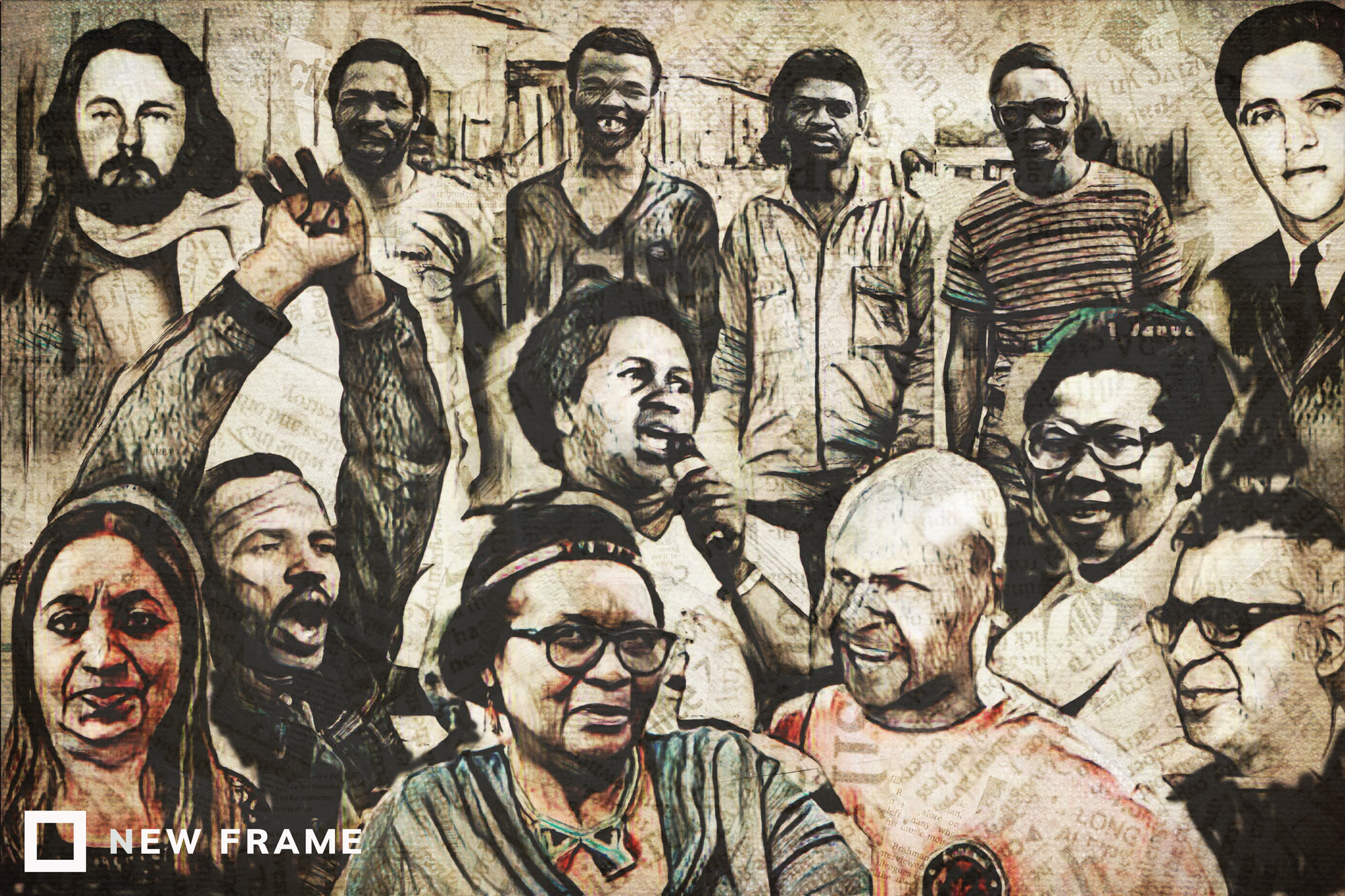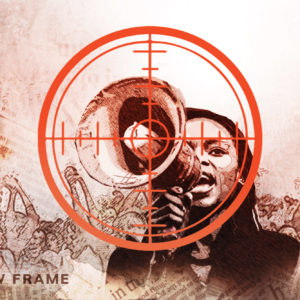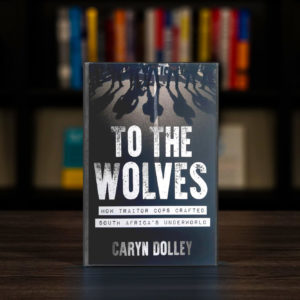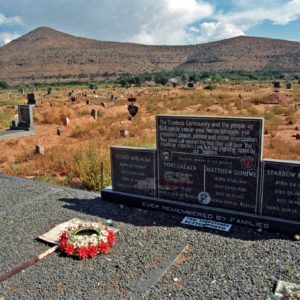Not even the dead
Our history of violence accumulates into the present as time slips by, and taints the future too. There must be decisive action against all political murders, old and new alike.
Author:
17 September 2021

South Africa is one of the most violent countries on the planet. We have the highest rate of rape recorded anywhere in the world. The murder rate here is the 10th highest in the world, as is the rate of suicide.
Those who demand state murder and ever more violent forms of policing as a response to this crisis are complicit in escalating it, given just how violent policing in South Africa is. Our police killed someone every 20 hours last year, and they kill a little less than two and half times more people per capita than the police in the United States.
The Independent Police Investigative Directorate, a deeply flawed organisation, recorded 270 allegations of torture by the police in 2019. It has received just under 1 000 reports of rape by police officers since 2012. Given that rape is seldom reported and that only a small percentage of people who experience police violence end up reporting it through formal channels, these figures almost certainly account for a small percentage of the actual number of incidents of torture and rape.
Related article:
Violence also often takes political forms and is a routine form of social control. Unarmed protesters are habitually met with violence from the police, some of it fatal. Political assassinations are routine in some parts of the country, and grassroots activists are regularly assaulted by the police and tortured in police stations. Waterboarding, with people’s faces covered by a rubber tube, is common.
Things are getting worse, not better, and the old assumption that time is on the side of progress is no longer credible. Unless something is done to break the cycle of violence, we will inhabit a future like that of many countries in Central America and the Caribbean, where violence saturates what seems to be an interminable present.
There are instances in which a single-minded focus on the violence of the past functions to distract attention from violence in the present, and sometimes, to render it as unimportant. This is not acceptable. Every life must, as grassroots activists on the front line of state violence have often said, count as a human life.
The politics of blood
But the temptation to try to keep the past in the past is equally mistaken. As American academic Ian Baucom wrote, “Time does not pass or progress, it accumulates.” Our history of violence accumulates into the present, and has already paved paths into the future. We carry it in our bodies and in the ways we inhabit the world. There is no real effort to break its grip on our intimate, public and political life.
If we are to break the cycle of violence, we need to intervene at all points in the flow of time – the past, the present and the future. German philosopher Walter Benjamin famously wrote that “not even the dead will be safe from the enemy, if he is victorious. And this enemy has not ceased to be victorious.”
We are no longer ruled by a fascist form of Afrikaner nationalism. But the colonial logic that renders some lives disposable, as having no value, endures. The right of women to bodily autonomy continues to be scorned and violated. Police stations remain sites of organised sadism. For impoverished people, the temerity to speak for justice has always required the courage to place oneself in harm’s way. Now, what grassroots activists have termed “the politics of blood”, has entered the suburbs.
Related article:
One of the important ways that we can intervene in the past is to seek both truth and justice for the dead. And when we seek truth and justice for people who gave their lives in the struggle for justice, for a society beyond the devastation of the present, we honour that vision and the courage that has sustained it, and invite it into the present.
Moving back from the assassinations of Babita Deokaran (2021) to Fikile Ntshangase (2020), Sikhosiphi “Bazooka” Radebe (2016) and Nkululeko Gwala (2013), and further back to the murders of Jabu Ndlovu (1990), Abu Baker Asvat (1989), the Cradock Four – Matthew Goniwe, Sicelo Mhlauli, Sparrow Mkonto and Fort Calata – (1985), Victoria Mxenge (1985), Neil Aggett (1982), Ahmed Timol (1971) and so, so many others, the value of life must be affirmed and as much truth and justice as is possible sought.
Squandered opportunities
But as time passes, possibilities dissipate. Last week, Joao Rodrigues, the apartheid security police officer charged with the murder of Timol, died at the age of 82. Timol, a gifted teacher with a passion for cricket, was a leading participant in the communist underground when he was arrested in Coronationville on the West Rand on 22 October 1971. Five days later, he was dead at the age of 26. The police claimed that he had leapt to his death from the 10th floor of John Vorster Square police station in Johannesburg. Timol was one of at least 73 political activists to have died in police detention between 1963 and 1990.
While his body was being washed in preparation for burial, his family saw that his neck was broken, his fingernails had been removed and he was covered in bruises and burn marks. The undertaker who saw his body in the police mortuary said that one of his eyes was out of its socket. Other people who had been detained in John Vorster Square at the same time as Timol reported severe torture, including beatings, electric shocks and sleep deprivation.
Related article:
On 30 August, Raymond Suttner, a key figure in the communist underground in Durban in the 1970s, testified to the high court in Pietermaritzburg how, after his arrest in 1975, his torturers approached their work with grim “theatrics of terror”. Suttner was testifying at the reopened inquest into the death of Hoosen Haffejee, a dentist and participant in the political underground, who died in the Brighton Beach police station in Durban the day after his arrest on 2 August 1977. Although his body had more than 60 wounds, the pathologist ruled that he had committed suicide.
There was never any doubt that Timol had been subject to horrific torture. However, the police version of events was accepted by the official inquest that followed his death. After a sustained campaign the inquest was reopened on 26 June 2017, and on 12 October Judge Billy Mothle ruled that Timol “died as a result of having been pushed to fall, an act which was committed by members of the Security Branch with dolus eventualis as a form of intent, and prima facie amounting to murder”. The judge ruled that Rodrigues, along with two other former police officers, should be investigated.
Failing in our duty
Rodrigues was not the first to slip into death before a long overdue call to account for murder could be realised. The Cradock Four, activists in the United Democratic Front, were stopped and abducted by the police outside Port Elizabeth on 27 June 1985. Their burnt bodies were later found in the scrub around the suburb of Bluewater Bay in Gqeberha. In May last year, Lukhanyo Calata, Fort’s son, acting with the support of the families of the other three men whose lives were taken, approached the National Prosecuting Authority (NPA) to make a final decision with regard to the case. But Eric Taylor, one of the men that murdered the Cradock Four, had died in 2016.
On 26 April 2019, the NPA announced that it would be reopening the inquest into the death of Aggett, a medical doctor and organiser with the Food and Canning Workers’ Union, who died in John Vorster Square at the age of 28. The day after the announcement, news was received that Stephan Whitehead, who had tormented Aggett in the police station and gone on to work for the post-apartheid state as an intelligence consultant, had died.
Related article:
The Timol, Haffejee and Aggett families, along with Lukhanyo Calata, have had the means to try to insist that there is some justice for their dead. Most of the families of the people who have given their lives in the struggle for justice have not had these means. People pass into names and, outside of a list or two on a badly maintained website, into general forgetting.
We cannot ensure that each human life is counted as a life if those that take human life are not called to account. On this score, as with so many others, we are failing.




